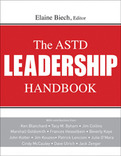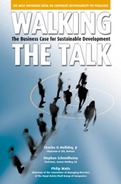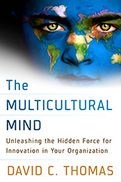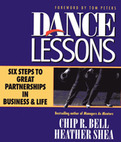2009
Provides a complete overview and practical strategies on a full range of leadership topics.
Featuring a who's who of leadership gurus, The ASTD Leadership Handbook is an exciting compilation of insights, ideas, and tools that will enable individuals, teams, and organizations to fully develop their leadership capabilities. It provides a complete overview of leadership and covers a full range of topics, including competencies, development, attributes, and current challenges, taking a broad view of what leadership means. Editor Elaine Biech and her team worked to carefully match up topics with the leading authorities: William Byham on leadership development, Ken Blanchard on ethics, Bill George on authenticity, John Kotter on leading change, Marshall Goldsmith on coaching, Dave Ulrich and Norm Smallwood on getting results, Patrick Lencioni on teams, Leongard Goodstein on strategic planning, Frances Hesselbein on leading the workforce of the future, and many more.
The ASTD Leadership Handbook's five sections -- Leadership Competencies, Leadership Development, Characteristics of Successful Leaders, Contemporary Leadership, and the Global Role of Leadership -- cover all the major leadership areas. Chapters are written from a practical perspective, enabling readers to immediately put the wisdom and experience of the authors to use in their own lives and organizations. The book also includes three dozen tools to help you apply the concepts, such as John Kotter's Eight-Step Change Model, Bill Gentry's Checklist for Avoiding Leader Derailment, Marshall Goldsmith's Mini Coaching Survey, Beverly Kaye and Sharon Jordan-Evan's Jerk Checklist, and Leonard Goodstein's Applied Strategic Planning Model. These tools are available as free downloads on the book's accompanying website.
This handbook sets itself apart in a crowded field by emphasizing leadership development and providing practical approaches to address this crucial need. When you pick up The ASTD Leadership Handbook you hold amost 2,000 years of experience in your hands. This will surely be the definitive leadership resource for many years to come.
Selected chapters from The ASTD Leadershipp Handbook are also available for sale in PDF format: Leadership Whitepapers.
-
Provides a complete overview and practical strategies on a full range of leadership topics
-
Contributors include more than forty-five renowned experts in the leadership field
-
Includes more than sixty activities, tools, and assessments for application of principles and concepts
2002
Stephan Schmidheiny, author of the hugely influential Changing Course, has joined with fellow prime movers in the World Business Council for Sustainable Development-Chad Holliday of DuPont and Philip Watts of Royal Dutch/Shell-to spell out the business case for addressing sustainable development as a key business strategy.
The authors insist that a global partnership-between governments, business and civil society-is essential, if accelerating moves towards globalization are to maximize opportunities for all, especially the world's poor. They argue that far more eco-efficient and socially equitable modes of development must be pursued in order to allow poorer nations to raise their standards of living.
To achieve these aims, the book explains that markets must be mobilized in favor of sustainability, leveraging the power of innovation and global markets for the benefits of everyone. Business cannot succeed in failing societies.
Whether small, medium or large, all businesses must innovate and change to meet the social and environmental challenges of the coming years. Walking the Talk provides proven strategies for doing just that, and real-world examples of business leaders who are becoming a leading force for change-improving both their own bottom lines and quality of life for future generations around the world.
- The most important book on corporate responsibility yet published
- Written by top corporate leaders Chad Holliday, Chairman and CEO, DuPont; Stephan Schmidheiny, Chairman, Anova Holding AG; and Philip Watts Chairman of the Committee of Managing Directors, Royal Dutch/Shell Group of Companies
- A publication of the World Business Council for Sustainable Development which includes members from 160 of the largest and most influential companies from around the world including: AOL Time Warner, AT&T, Bayer, BP, Coca Cola, and Dow Chemicals (see attached list at the end of the EFS for full listing)
- Uses nearly 70 case histories of companies from around the world to show that good corporate social and environmental performance is an investment which will improve the bottom-line
- Argues that a further liberalization of the global market is the best way to alleviate third world poverty and encourage corporate responsibility
- Explores, in depth, the three pillars of sustainable development: economic growth, ecological balance, and social progress
- The authors are key insiders who show how to mobilize markets in favor of sustainable development
- Copublished with Greenleaf Publishing
David Thomas makes a compelling business case for recognizing and cultivating a new dimension of diversity—the diversity within individuals! He looks at how to establish the organizational conditions under which multiculturals can flourish and shows how even the most monocultural among us can gain the advantages of a multicultural mind.
1998
Provides invaluable insights into the changing world of powerful partnering
Offers tools, details techniques, and provides activities and resources to help you develop successful partnerships in every enterprise
Partnerships are fast becoming the primary structure of contemporary business, as organizations partner with vendors, unions, customers, and even competitors to take advantage of short-term market opportunities, leverage intellectual capital, and create more flexible and innovative enterprises. In this important guide, authors Chip Bell and Heather Shea offer an in-depth look at how we can successfully manage partnerships and build them with substance-passion, quality, heart, and soul.
While many other books have examined the rational, logical, analytical sides of partnership, none has fully explored the irrational, illogical, emotional sides, which are most often what cause partnerships to falter or fail. Dance Lessons is a comprehensive guide to the interpersonal side of partnerships, revealing exactly how the champions choreograph their partnership dances for show-stopping performances. It features:
new perspectives to help you decide if partnership is right for you
exciting tools for selecting the right form of partnership
important techniques to help you get emotionally prepared to partner
smart ways to accurately pick good partners
engaging activities to help you practice your partnership skills
effective methods for dealing with difficult partners and partnerships
vital cues that let you know when the partnership is ready to end, and helpful tips on how to end it
insights on how to manage external factors that effect partnership success
practical resources to help you continue to learn about effective partnering
Dance Lessons shows how to develop meaningful, ethical, and soulful partnerships in every interaction throughout your work and your life.
- From Chip R. Bell, the bestselling author of Customers as Partners , Managers as Mentors , and Managing Knock You rSocks Off Service , partnering with Heather Shea, the former president of The Tom Peters Group's training and consulting company
- Provides invaluable insights into the changing world of powerful partnering
- Offers tools, details techniques, and provides activities and resources to help you develop successful partnerships in every enterprise
The second edition includes new examples, tools, and tips for using AI to create an enduring capacity for positive change, along with a totally new chapter on award-winning community applications of Appreciative Inquiry.
• New edition of the most authoritative, comprehensive, and practical guide to large-scale positive change
• Revised throughout, with new business and nonprofit examples and tools and a new chapter on community-based applications of Appreciative Inquiry (AI)
• Written by two pioneering AI thought leaders
The Power of Appreciative Inquiry describes the wildly popular approach to organizational change that dramatically improves performance by engaging people to study, discuss, and build upon what’s working, rather than trying to fix what’s not. Whitney and Trosten-Bloom provide a menu of eight results-oriented approaches to AI, along with case examples from a wide range of organizations to illustrate Appreciative Inquiry in action. A how-to book, this is the most authoritative and accessible guide to the newest ideas and practices in the field of Appreciative Inquiry since its inception in 1985.
To write the second edition, Whitney and Trosten-Bloom conducted an appreciative inquiry with first edition readers. At the urging of these readers, this edition includes a totally new chapter on community applications of Appreciative Inquiry, along with new examples, tools, and tips for using AI to create an enduring capacity for positive change.


























